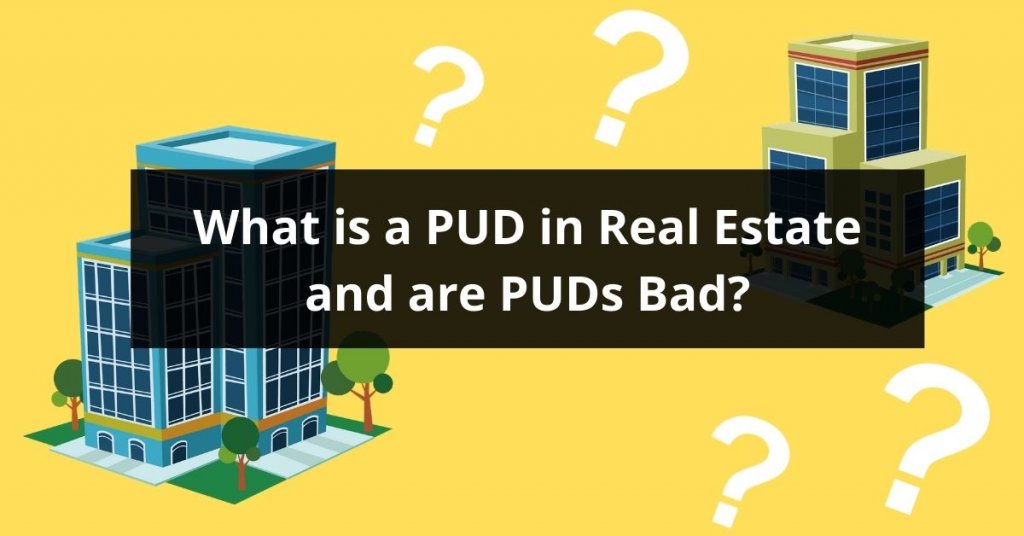When you’re ready to buy a home in a city or urban area, you’re going to come across two acronyms: PUD and HOA. Although they seem similar, they serve different purposes and that is what we’re here to help you learn about.
Below you will find everything you want to know about PUDs (Planned Urban Developments) and if buying a home that is part of one is the right decision for you.
What is a PUD in real estate?
A PUD or Planned Urban Development means that the home you are buying is part of a planned community and once you buy that property you will become a part of the HOA and part owner of common areas and amenities. PUDs can include a variety of housing types like condos, townhomes, and single family homes. They can also include commercial real estate uses, but that is for a different post.
You’ll typically see that PUD properties come with access to local amenities such as lakes, parks, swimming pools, and so on. Sometimes that property might be a part of a community that features its own grocery stores, gyms, restaurants, and security detail.
It’s important to remember that the extent of the rights that come with a PUD vary—not all are the same and this could also apply to specific amenities within the community and local area.
PUD vs. HOA, What is the Difference?
The difference between a PUD and an HOA is that PUD is a property descriptor, while the HOA is a sanctioning body that you pay dues to as the homeowner.
The HOA essentially is responsible for the upkeep of the community that the PUD is linked to. That means PUD owners have to pay dues to the HOA to keep up with the amenities that homeowners have rights to.
Being part of an HOA also means that the homeowners cooperate with the practices and standards that the HOA requires. What this means for you, as a buyer, is that you’ll want to read into both what the PUD includes rights to and what the HOA requires of you as both are subject to variation depending on the community the property is attached to.
What does PUD mean on an appraisal?
A PUD on an appraisal is how you find out if the property is part of a planned urban development and how much you will likely owe in fees. You’ll also find out which fees are optional vs. mandatory so pay close attention to this section. You’ll also learn what rights you have as a homeowner in the PUD by reading this section of the appraisal.
There are some instances where PUD could be checked on your appraisal documents, but there is no clear example. If you’re unable to find why the property is labeled as a PUD, your best move is to contact the appraiser. They can fill you in on any details not mentioned in the fine print, as well as other property details that you deem essential.
Pros and Cons of Having a PUD
As with any type of housing development, there are pros and cons to having a PUD. You can probably infer what those are on your own, but we’ll help you break it down and keep your thoughts organized.
Pros of PUDS:
- You get access to various private amenities.
- Common area upkeep is not your responsibility.
- Security services are often supplied on behalf of HOA’s.
Cons of PUDS:
- You need to follow the rules regarding parking, pet ownership, home exteriors, and other items related to the PUD community.
- You do not have complete autonomy in the way you use your property.
- Single-family homes resemble townhomes in that they are within close proximity.
The most important thing to understand is that the definition of a PUD and HOA is only enough to introduce you to a property. You must read into each property’s rights and terms as they’re subject to variation in each case. If you’re ready to purchase a new property and have questions about it, or about the title insurance needed for owning a PUD, contact us today and we’ll be happy to assist with your purchase.

